第21章
"Would it be possible," he asked, "to let this Revalenko believe that he could trust you, that it would be safe for him to visit you to-night at Saratovsky's? Surely you can find some way of reassuring him.""Yes, I think that can be arranged," said Kazanovitch."I will go to him, will make him think I have misunderstood him, that I have not lost faith in him, provided he can explain all.He will come.
Trust me."
"Very well, then.To-night at eight I shall be there," promised Kennedy, as the novelist and he shook hands.
"What do you think of the Revalenko story?" I asked of Craig, as we started uptown again.
"Anything is possible in this case," he answered sententiously.
"Well," I exclaimed, "this all is truly Russian.For intrigue they are certainly the leaders of the world to-day.There is only one person that I have any real confidence in, and that is old Saratovsky himself.Somebody is playing traitor, Craig.Who is it?""That is what science will tell us to-night," was his brief reply.
There was no getting anything out of Craig until he was absolutely sure that his proofs had piled up irresistibly.
Promptly at eight we met at the old house on Fifth Avenue.Kharkoff's wounds had proved less severe than had at first been suspected, and, having recovered from the shock, he insisted on being transferred from the hospital in a private ambulance so that he could be near his friends.Saratovsky, in spite of his high fever, ordered that the door to his room be left open and his bed moved so that he could hear and see what passed in the room down the hall.Nevsky was there and Kazanovitch, and even brave Olga Samarova, her pretty face burning with the fever, would not be content until she was carried upstairs, although Dr.Kharkoff protested vigorously that it might have fatal consequences.Revalenko, an enigma of a man, sat stolidly.The only thing I noticed about him was an occasional look of malignity at Nevsky and Kazanovitch when he thought he was unobserved.
It was indeed a strange gathering, the like of which the old house had never before harboured in all its varied history.Every one was on the qui vive, as Kennedy placed on the table a small wire basket containing some test-tubes, each tube corked with a small wadding of cotton.There was also a receptacle holding a dozen glass-handled platinum wires, a microscope, and a number of slides.
The bomb, now rendered innocuous by having been crushed in a huge hydraulic press, lay in fragments in the box.
"First, I want you to consider the evidence of the bomb," began Kennedy."No crime, I firmly believe, is ever perpetrated without leaving some clue.The slightest trace, even a drop of blood no larger than a pin-head, may suffice to convict a murderer.The impression made on a cartridge by the hammer of a pistol, or a single hair found on the clothing of a suspected person, may serve as valid proof of crime.
"Until lately, however, science was powerless against the bomb-thrower.A bomb explodes into a thousand parts, and its contents suddenly become gaseous.You can't collect and investigate the gases.Still, the bomb-thrower is sadly deceived if he believes the bomb leaves no trace for the scientific detective.It is difficult for the chemist to find out the secrets of a shattered bomb.But it can be done.
"I examined the walls of Dr.Kharkoff's house, and fortunately was able to pick out a few small fragments of the contents of the bomb which had been thrown out before the flame ignited them.Ihave analysed them, and find them to be a peculiar species of blasting-gelatine.It is made at only one factory in this country, and I have a list of purchasers for some time back.One name, or rather the description of an assumed name, in the list agrees with other evidence I have been able to collect.Moreover, the explosive was placed in a lead tube.Lead tubes are common enough.However, there is no need of further evidence."He paused, and the revolutionists stared fixedly at the fragments of the now harmless bomb before them.
"The exploded bomb," concluded Craig, "was composed of the same materials as this, which I found unexploded at the door of Miss Nevsky's room - the same sort of lead tube, the same blasting-gelatine.The fuse, a long cord saturated in sulphur, was merely a blind.The real method of explosion was by means of a chemical contained in a glass tube which was inserted after the bomb was put in place.The least jar, such as opening a door, which would tip the bomb ever so little out of the horizontal, was all that was necessary to explode it.The exploded bomb and the unexploded were in all respects identical - the same hand set both."A gasp of astonishment ran through the circle.Could it be that one of their own number was playing false? In at least this instance in the warfare of the chemist and the dynamiter the chemist had come out ahead.
"But," Kennedy hurried along, "the thing that interests me most about this case is not the evidence of the bombs.Bombs are common enough weapons, after all.It is the evidence of almost diabolical cunning that has been shown in the effort to get rid of the father of the revolution, as you like to call him."Craig cleared his throat and played with our feelings as a cat does with a mouse."Strange to say, the most deadly, the most insidious, the most elusive agency for committing murder is one that can be obtained and distributed with practically no legal restrictions.
Any doctor can purchase disease germs in quantities sufficient to cause thousands and thousands of deaths without giving any adequate explanation for what purpose he requires them.More than that, any person claiming to be a scientist or having some acquaintance with science and scientists can usually obtain germs without difficulty.